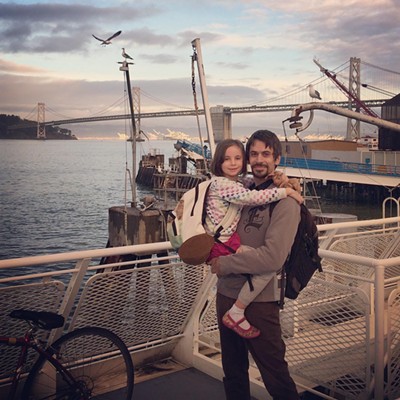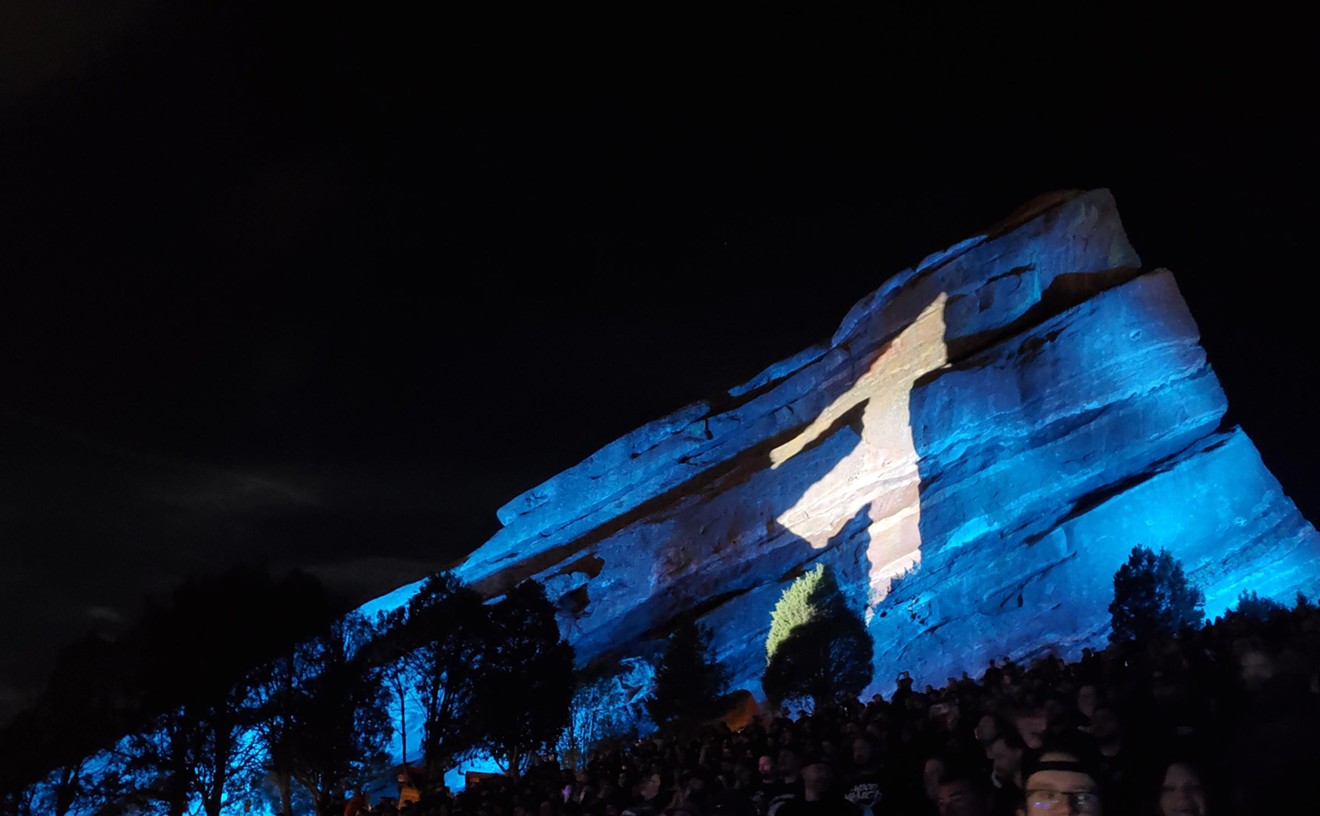The Grateful Dead is still noteworthy, fifty years after the San Francisco band’s emergence amid the remnants of the Beats and the beginnings of the hippie generation. According to longtime Grateful Dead Hour producer David Gans (who also co-hosts the Grateful Dead channel on SiriusXM with Gary Lambert), “People are playing [Grateful Dead music] from coast to coast every day in tiny little clubs and big venues and in recording studios. The music is immortal, and it’s being kept alive by thousands of people.” The Dead is marking the twentieth anniversary of its final concert with a trio of performances in Chicago featuring the band’s four remaining core members — Bob Weir, Phil Lesh, Mickey Hart and Bill Kreutzmann — along with supporting musicians including Phish guitarist Trey Anastasio, who’s essentially filling in for the band’s deceased leader, Jerry Garcia.
The choice of Anastasio, along with how Ticketmaster and Grateful Dead Ticket Sales (GDTS) have handled the sale of the approximately 200,000 tickets available for the shows, has come under intense scrutiny. Some fans are angry, including Boulder Weekly owner/publisher Stewart Sallo, who recently published a scathing editorial in the Huffington Post.
“The choices of Chicago and of Anastasio were not made in the spirit of providing the truest Grateful Dead experience for the fans,” Sallo wrote, “but, rather, to fulfill the highest possible financial gain.”
Sallo accused the Dead of selling “some of the tickets twice so Ticketmaster can receive its cut” and called Anastasio a “perplexing choice” because he hasn’t “studied Garcia’s music in a way that qualifies [him] to fill [Garcia’s] enormous empty shoes.”
Gans, who has produced the Grateful Dead Hour since the ’80s and started seeing Dead shows in the ’70s, has never been an Anastasio or Phish fan, but loves the choice of Anastasio for the Dead reunion/finale, which is being dubbed Fare Thee Well.
“I think, musically, it’s going to be very cool,” says Gans. “I think the choice of Trey Anastasio is a good one. It’s a guy who knows how this music works [and] how to improvise. He has a strong voice of his own, so there’s no danger of him following the ‘Jerry Garcia clone’ model.”
Gans’s co-host Lambert, who is well known in Dead circles for starting the Grateful Dead Almanac in 1993, agrees. “Although I’m not the biggest Phish fan, I have incredible respect for [Anastasio]. Trey has never denied the influence [of Garcia] but had never sat down and learned Jerry’s parts like some of the more imitative players do. He has played Grateful Dead music and he loves Grateful Dead music, but he has approached it in his own way. Everything that I’ve read that he’s said shows that he’s so philosophically right for this.”
“This is not a museum piece,” says Gans. “This event is a ceremony of sorts, and I don’t think anyone on Earth has a right to declare what it needs to be. It is what the purveyors of the music have chosen to do with it, and as such, it’s valid on the face of it. It’s not our place to dictate the conditions of the celebration.”
Still, the question remains: What “qualifies” someone to play Grateful Dead music, or play lead guitar in a Grateful Dead reunion band? Sallo adamantly prefers someone like John Kadlecik, who faithfully played the part of Garcia — replicating him in both music and even appearance — in Dark Star Orchestra for over a decade.
To many, the “truest Grateful Dead experience” doesn’t involve copying the band’s music verbatim, but being influenced by it as well as improvising and evolving. Sonic Youth, for instance, included a guitarist (Lee Ranaldo) who took his time as a Deadhead and paid tribute by encouraging his band to improvise as a group, meld songs together in concert and generally take risks on stage. That might be a more fitting tribute to Jerry Garcia than studying and repeating his solos from Live/Dead.
“Some of my favorite Grateful Dead shows have been by Bill Frisell,” Lambert half jokes. “Anybody who’s playing music fearlessly and defying musical expectations, I’m happy calling a Grateful Dead tribute band.”
As for the accusations of GDTS engaging in shady business, Lambert was incredulous.
“That is spectacularly ill-informed. [Sallo] is completely talking out of his ass. The fact that [GDTS] gets tickets for events like this at all is the result of incredible vigilance on the band’s part. The Grateful Dead pioneered standing up to Ticketmaster and saying to the promoter, ‘GDTS is getting half the tickets.’ When the Grateful Dead ended, those arrangements ended. Now, the percentages have been smaller, but for this event, they took the hard line of getting GDTS as many tickets as they possibly could, [including] the overwhelming majority of the best seats.”
“So [Sallo] had the numbers wrong about what the percentages were, and there was not a bit of research done.”
Lambert says that Fare Thee Well excites him as a launchpad from which the remaining members of the Grateful Dead can, well, do new shit.
“My feeling about the Chicago thing,” he says, “is that once that’s over, it will free them from that burden of expectation — that ‘When’s the next tour?’ thing. They’re gonna diverge into really interesting things, with really interesting combinations of people. They’ve all got interesting projects that they’re really happy with. So this is not an occasion of mourning for me.”
And perhaps that’s “the truest Grateful Dead experience” — to keep evolving, as the band did so successfully and so rapidly in its first decade or so, before Garcia fell deep into narcotics and the band’s music fell deep into ossification. Maybe the point is that the surviving members of the Grateful Dead have the right to do whatever the heck they please, and that includes not only choosing who they want to play with, but also choosing to never play Grateful Dead music together again.
[
{
"name": "Air - MediumRectangle - Inline Content - Mobile Display Size",
"component": "12017618",
"insertPoint": "2",
"requiredCountToDisplay": "2"
},{
"name": "Editor Picks",
"component": "17242653",
"insertPoint": "4",
"requiredCountToDisplay": "1"
},{
"name": "Inline Links",
"component": "18838239",
"insertPoint": "8th",
"startingPoint": 8,
"requiredCountToDisplay": "7",
"maxInsertions": 25
},{
"name": "Air - MediumRectangle - Combo - Inline Content",
"component": "17261320",
"insertPoint": "8th",
"startingPoint": 8,
"requiredCountToDisplay": "7",
"maxInsertions": 25
},{
"name": "Inline Links",
"component": "18838239",
"insertPoint": "8th",
"startingPoint": 12,
"requiredCountToDisplay": "11",
"maxInsertions": 25
},{
"name": "Air - Leaderboard Tower - Combo - Inline Content",
"component": "17261321",
"insertPoint": "8th",
"startingPoint": 12,
"requiredCountToDisplay": "11",
"maxInsertions": 25
}
]











